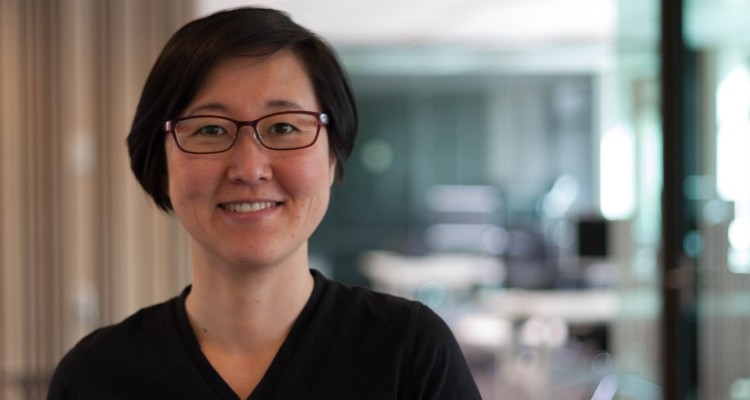Wed 13 Apr 2022

Workplace Pride's Yuli Kim (pictured) speaks to Dods Diversity & Inclusion about best practices to ensure LGBT+ staff feel comfortable bringing their whole selves to work
By Murielle Gonzalez
Yuli Kim, director of L&D programme and relationship manager at Workplace Pride, knows about discrimination people in the LGBT+ community face throughout their life from personal experience. "I grew up as a Korean Japanese in Japan, but I've been living in the Netherlands since 2010, and I'm a lesbian," she said, setting the tone for the conversation with Dods Diversity & Inclusion around LGBT+ inclusion in the workplace. She explained that these intersectional, personal characteristics impacted how she saw herself, which is a lived experience shared by many LGBT+ people worldwide.
Workplace Pride is an international organisation based in Amsterdam, using over a decade's experience and accumulated knowledge to push the boundaries of LGBTIQ+ inclusion at work. The concept Workplace Pride uses is broader than the traditional LGBT+ umbrella, by recognising intersex and queer individuals, hence adding the initials to the acronym. In this interview, Kim reflects on how to nurture diversity and inclusion in the workplace — and the dos and don'ts of making it right.
Why is LGBTIQ+ inclusion at work so important?
The short answer: people drive performance, and negative touchpoints are too costly.
Suppose you can't bring your whole self and be comfortable with yourself with the external environment or in the workplace and your relationship with people. In that case, it's difficult to bring your best performance at work because your attention is going somewhere else — you are constantly worried, thinking 'are they going to find out that I'm gay?'
What is the building block of achieving inclusion?
I believe that a sense of belonging is a prerequisite for anyone to perform their best at work, regardless of their gender, gender identity, sexual orientation or gender expressions.
What are the barriers to addressing LGBTIQ+ inclusion at work?
Many LGBTIQ+ people don't come out at work because they have faced discrimination throughout their lives, starting at home, in their family, and then in society as they grow, from school to the workplace. It gets better for some people, but for others, it gets worse.
The problem is that at many touchpoints in society, we experience discrimination or micro-aggression — it can be subtle, physical, horrible, and have a deeper psychological impact on people.
These accumulative experiences influence our psychological safety in society, and the workplace is no exception.
What can organisations do to overcome these barriers?
Education is key. We need to keep talking about it, addressing the challenge by educating people about the status quo. People need to understand that LGBTIQ+ inclusion is about psychological safety — that of your colleagues and yourself.
How can discrimination affect people outside the LGBTIQ+ community?
Most people think that gender diversity and inclusion is about LGBTIQ+ people when it really is about everyone. Everybody benefits from an inclusive workplace — it's about treating people with dignity and kindness.
Discrimination is like a rock being thrown out. You are not directly impacted by it, but it affects you. For example, you may be having a conversation about a gay colleague getting married, and then someone joins the chat with a question: 'which one of them is going to wear a wedding dress?' So, you are not affected directly by the comment, but you are impacted as you can realise that you are working with people who could say such things — it's a toxic comment that comes across as a joke, but it's not and could impact your psychological safety as well.
Is LGBTIQ+ inclusion a matter of concern to all organisations?
It's always good to assume there are LGBTIQ+ people around you. In the UK, the coming out rate varies from city to city. In London, for example, it is probably around 70% to 80%. Particularly among the younger generation, when gender fluidity is more common nowadays.
What are the top best practices for LGBTIQ+ inclusion in the workplace?
There are three main topics — commitment, allyship and advocates, and inclusiveness.
Commitment requires transforming the culture for the better. This approach includes policies, continuous monitoring and reporting of equity, diversity & inclusion — not just on LGBTIQ+, but also on gender, race, culture, age, leadership, pay gap, etc. Data is evidence of the commitment in the organisations to make changes or acknowledge the issues.
Allyship and advocates are needed to be visible to employees, and they can be business leaders supporting their LGBTIQ+ staff and acknowledging Pride months and being visible about it.
Inclusiveness relates to allowing everyone to bring their self to work. Of course, the interpretation of inclusion differs from person to person, but it really is about providing a space of psychological safety to be yourself.
Supporting LGBT+ Colleagues at Work: Pride in Diversity takes place on 19 April with a content-packed agenda. Sector-leading speakers will cover everything from understanding the specific challenges encountered by different individuals in the LGBT+ community to policy in practice.
Just some sessions you don't want to miss:
- Keynote address: You've got a friend in me: the importance of being an LGBT+ ally by Nick Pett, Deputy Director, Ministry of Defence
- Panel discussion with:
- Laïla El-Métoui, Award Winning Equity Educator, Founder of UK Queer Arabs, Pride in Education, Educating Out Racism, and Proud London Councils
- Rachel Reese, CEO, Global Butterflies
- Karen Harvey-Cooke, Chair of Enfys the LGBT+ staff network, Cardiff University
- Keynote address: Intersectionality at work: appreciating individuality and recognising each staff member as unique by Laks Mann, Mayor of London EDI Advisor, LGBTQ+ Lead
REGISTER TO ATTEND
ABOUT THE AUTHOR
Murielle Gonzalez, content strategy manager at Dods Diversity & Inclusion, is an experienced journalist and editor. She can be reached on murielle.gonzalez@dodsgroup.com.
View all news